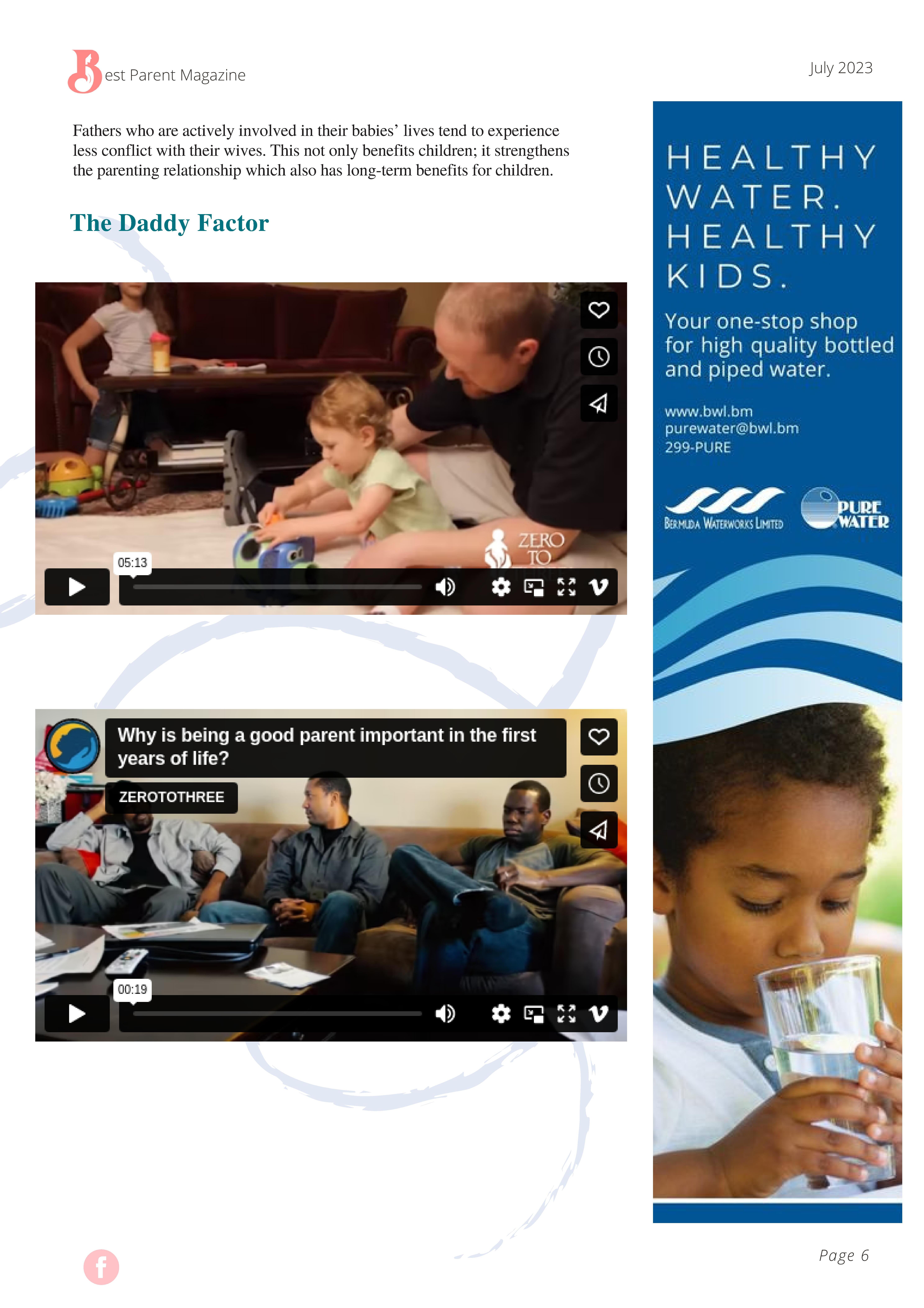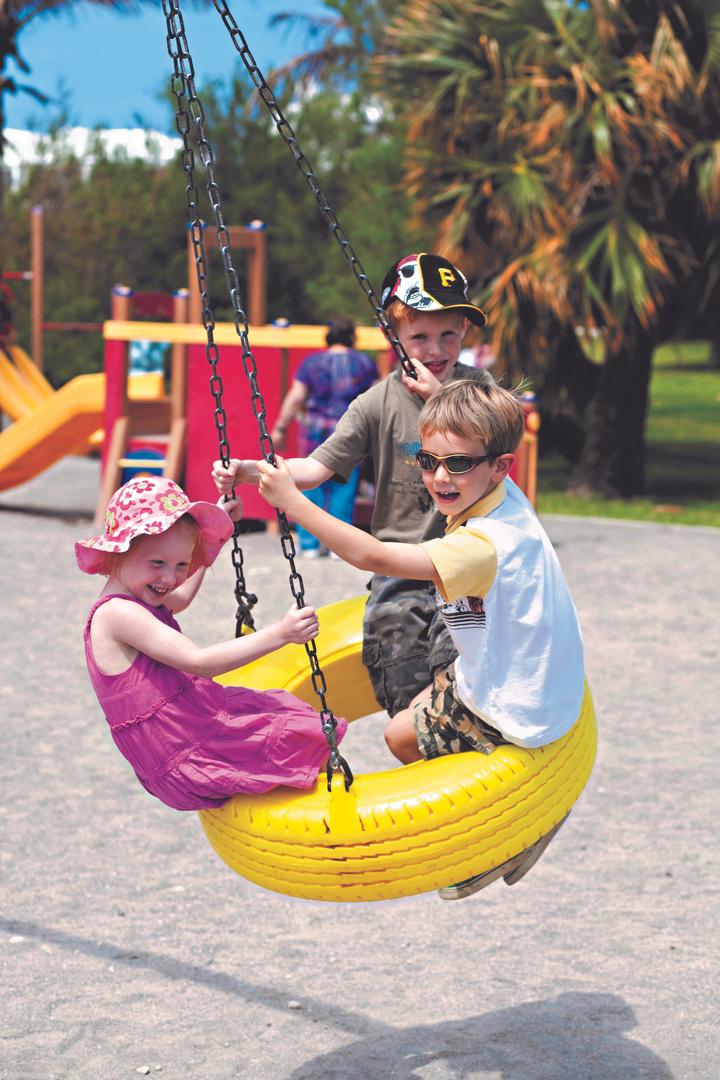PARENTING A STRONG WILLED CHILD










PARENTING A STRONG WILLED CHILD









Our last issue focused on mothers and this issue we are focusing on fathers. Often due to societies stereotypes of fathers and our individual biases we can underappreciate the value of a father or father figures in the role of raising our children.
With that said I personal want to thank my father, step-father and my husband for the role they played in my life as well as in my boys lives. Happy Reading.






Dads matter a lot.
The relationship between father and child has a deep impact on a child’s overall and long-term healthy development.
Children whose fathers are involved in their daily care such as feeding, bathing, and playing together, tend to be more confident; and, as they grow older, enjoy stronger social connections with peers. Research shows secure attachments have positive benefits that last into adulthood Children who are securely attached do better academically; they are also more sociable and well-liked throughout early childhood as compared to children who do not have secure attachments Fathers who care for, nurture, and play with their babies raise children with higher IQs and with better language and cognitive skills The more time fathers spend in enriching, stimulating play with their child such as playing pretend or sharing stories the better the child’s math and reading scores are at 10 and 11 years old.
The rough-and-tumble kind of play that fathers engage in with young children helps regulate their feelings and behavior It teaches children how to deal with aggressive impulses and physical contact in socially acceptable ways
While mothers are more likely to form secure attachments by comforting their children when they are distressed, fathers are more likely to provide security in the context of the controlled excitement of play or discipline This helps children learn where the boundaries of safety and risk-taking exist in the world a very important skill that builds self-regulation and can prevent problems with aggression and violence later on Fathers push children beyond their comfort zone in the best ways Dads, typically more than moms, encourage their children to take calculated risks: trying the deep end of the pool, talking to someone new, or finding ways to overcome obstacles.
Children with involved fathers tend to be more patient; and, when they are older, they can handle the stresses and frustrations associated with schooling more easily than children with less involved fathers. Children of involved fathers are less likely to get in trouble at home, in school, and in the neighborhood, and they are less likely to experience depression.
When fathers are found to be emotionally and physically remote from their infants at 3 months and again at 12 months of age, by the time they enter preschool the children were found to be more aggressive with their peers This was particularly true for boys and occurred independently from how the mothers behaved with their infants





Did you know that sunburn during childhood has been linked to a higher risk of developing skin cancer? You have the power to give your child’s skin the best start by using sun protection consistently.
Non-melanoma skin cancers are among the most frequently diagnosed cancers, but they also typically respond very well to treatment On the other hand, melanomas account for only 1% of all skin cancers, but they can become quite dangerous if they are not caught and treated early. Unfortunately, melanoma is among the most frequently diagnosed cancers in young adults. One of the best ways to prevent melanomas is to use sun protection from an early age
Bermuda Cancer and Health Centre advocates safe skin habits through its SunSmart Programme, which teaches schoolchildren how to protect themselves from harmful sun exposure. The SunSmart Programme uses five S-words to make it easy to remember sun safety: Slip, Slop, Slap, Seek, Slide.

Your child’s sunscreen should have at least SPF 30, which means it protects their skin from burning for 30 times longer than if they had no sunscreen The thing to remember about sunscreen is that you can’t just set it and forget it! Apply sunscreen 20 minutes before going outdoors and reapply it every two hours plus after swimming or heavy sweating
Sunscreen isn’t just for the beach Apply your child’s sunscreen whenever they go outside. If they go to school or camp, apply it in the morning and pack some in their bag to reapply throughout the day
It’s crucial to begin protecting your child’s skin from birth While sunscreen is not recommended for babies under six months old, you can keep your young baby in the shade, dress your baby in long clothes and a hat, and use a sun shade on your stroller Once your baby is six months old, it’s safe to use chemical-free sunscreen and sunblock with zinc oxide or titanium oxide.
To learn more about the SunSmart Programme, please visit chc.bm or call 236-1001.


UPF means Ultraviolet Protection Factor, which indicates how much ultraviolet UVA and UVB radiation can go through the fabric and onto your child’s skin This measurement is unlike SPF, which is based on the time it takes for UVB-exposed skin to redden. The Skin Cancer Foundation only recommends fabrics with a UPF of 30 or more

If you can’t find UPF-rated clothing, choose clothes with better protection. Dark colours and tighter knits block more UV rays than white or loose-knit clothes A white T-shirt only has a UPF of five! That means it blocks 1/5 of UV radiation, leaving 80% of the rays to hit your child’s skin.
No matter the UPF, clothing can only protect the skin it covers, so opt for long sleeves and long pants for your child whenever possible
You might be seeking shade already to escape the heat! Taking your child into a shady spot gives you both a break from UV rays on your skin. Bring a pop-up tent to the beach, play under the trees at the park and choose playgrounds with canopies. If you’re going to an area without shade, consider holding an umbrella to shield yourself and your child from the sun.
Hats are more than adorable accessories for your child A wide-brimmed hat reduces the amount of sun that reaches junior’s head, face, neck and ears the most common areas for both non-melanoma skin cancer and melanoma.
Is there anything cuter than your kid wearing shades? Cuteness aside, your child’s eyes need protection from UV exposure. Look for sunglasses that are labelled UV 400 and offer 100% UV protection.
By teaching your child the five SunSmart S-words and protecting their skin from birth, you are establishing healthy habits and reducing your child’s risk of skin cancer.
To learn more about the SunSmart Programme, please visit chc.bm or call 236-1001.














































DADS REALLY DO MATTER. CHILDREN NEED FATHERS – JUST AS THEY NEED MOTHERS – TO LOVE THEM, TO BE INTERESTED IN THEM AND TO RESPOND TO THEIR NEEDS, MAKING THEM FEEL VALUED AND UNDERSTOOD.
Fathers are just as essential to healthy child development as mothers. Psychology Today explained, “Fatherhood turns out to be a complex and unique phenomenon with huge consequences for the emotional and intellectual growth of children ” "Shuttle Diplomacy," Psychology Today, July/August 1993, p 15 Erik Erikson, a pioneer in the world of child psychology, asserts that a father’s love and a mother’s love are qualitatively different
Fathers “love more dangerously” because their love is more “expectant, more instrumental” than a mother’s love As cited in Kyle D. Pruett, The Nurturing Father, (New York: Warner Books, 1987), p. 49. A father brings unique contributions to the job of parenting a child that no one else can replicate. Following are some of the most compelling ways that a father’s involvement makes a positive difference in a child’s life
Fathers parent differently.
Fathering expert Dr. Kyle Pruett explains that fathers have a distinct style of communication and interaction with children. By eight weeks of age, infants can tell the difference between their mother’s and father’s interaction with them.
This diversity, in itself, provides children with a broader, richer experience of contrasting relational interactions. Whether they realize it or not, children are learning, by sheer experience, that men and women are different and have different ways of dealing with life, other adults and children This understanding is critical for their development


Fathers play differently.
Fathers tickle more, they wrestle, and they throw their children in the air (while the mother says . . . “Not so high!”). Fathers chase their children, sometimes as playful, scary “monsters ” Fathering expert John Snarey explains that children who roughhouse with their fathers learn that biting, kicking and other forms of physical violence are not acceptable John Snarey, How Fathers Care for the Next Generation: A Four Decade Study (Cambridge: Harvard University Press, 1993), p 35-36 They learn self-control by being told when “enough is enough” and when to settle down. Girls and boys both learn a healthy balance between timidity and aggression.
Fathers build confidence.
Go to any playground and listen to the parents. Who is encouraging kids to swing or climb just a little higher, ride their bike just a little faster, throw just a little harder? Who is encouraging kids to be careful? Mothers protect and dads encourage kids to push the limits. Either of these parenting styles by themselves can be unhealthy. One can tend toward encouraging risk without consideration of consequences. The other tends to avoid risk, which can fail to build independence and confidence. Together, they help children remain safe while expanding their experiences and increasing their confidence.
Fathers communicate differently.
A major study showed that when speaking to children, mothers and fathers are different. Mothers will simplify their words and speak on the child’s level. Men are not as inclined to modify their language for the child. The mother’s way facilitates immediate communication; the father’s way challenges the child to expand her vocabulary and linguistic skills an important building block of academic success.



Fathers discipline differently.
Educational psychologist Carol Gilligan tells us that fathers stress justice, fairness and duty (based on rules), while mothers stress sympathy, care and help (based on relationships). Fathers tend to observe and enforce rules systematically and sternly, teaching children the consequences of right and wrong. Mothers tend toward grace and sympathy, providing a sense of hopefulness. Again, either of these disciplinary approaches by themselves is not good, but together, they create a healthy, proper balance.
Fathers prepare children for the real world. Involved dads help children see that attitudes and behaviors have consequences. For instance, fathers are more likely than mothers to tell their children that if they are not nice to others, kids will not want to play with them. Or, if they don’t do well in school, they will not get into a good college or secure a desirable job. Fathers help children prepare for the reality and harshness of the world.
Fathers provide a look at the world of men. Men and women are different. They eat differently. They dress differently. They cope with life differently. Girls and boys who grow up with a father are more familiar and secure with the curious world of men. Girls with involved, married fathers are more likely to have healthier relationships with the opposite sex because they learn from their fathers how proper men act toward women. They know which behaviors are inappropriate. They also have a healthy familiarity with the world of men they don’t wonder how a man’s facial stubble feels or what it’s like to be hugged by strong arms. This knowledge builds emotional security and safety from the exploitation of predatory males. Boys who grow up with dads are less likely to be violent. They have their masculinity affirmed and learn from their fathers how to channel their masculinity and strength in positive ways. Fathers help sons understand proper male sexuality, hygiene, and behavior in ageappropriate ways. As noted sociologist David Popenoe explains, “Fathers are far more than just ‘second adults’ in the home. Involved fathers especially biological fathers bring positive benefits to their children that no other person is as likely to bring.”David Popenoe, Life Without Father (New York: The Free Press, 1996), p. 163.




Coping with your own financial anxiety during a cost-of-living crisis can seem like a task in itself, but many parents face the added challenge of keeping their children’s money worries at bay. In a recent survey by King’s College London(opens in a new tab), one in three parents said that they thought the cost of living crisis could affect the mental health of their child a great deal, while over 70% thought that it would have at least a small effect.

Managing your own feelings about rising costs and a tighter budget alongside ensuring that your children feel safe and secure can feel like an impossible task at times, and research by Action for Children(opens in a new tab) shows that children are picking up on this – almost a third worry about their family having enough money to live comfortably, increasing to 47% for low-income families
Fortunately, there are some things that parents can do to offer reassurance, without being dishonest or minimising the problem Here, GP and wellbeing expert Dr Radha Modgil explains how to recognise the signs in your child, and how you can help.
If you haven’t noticed your child feeling anxious previously, it might not be immediately obvious what’s bothering them – though you might spot changes in their behaviour. “Anxiety is a normal human emotion,” says Dr Radha “But if it’s becoming overwhelming for your child in terms of their thoughts and feelings, or if they are struggling to eat, sleep or socialise, there may be a problem that needs to be addressed.”
You might also notice your child’s personality change, as anxiety can sometimes be expressed as anger or even manifest as physical aches and pains Left unaddressed, it’s easy to see how these behavioural changes might begin to affect your child’s quality of life in a negative way.

Coming so soon after the pandemic – a period in which successive lockdowns affected children’s education, personal development and opportunities to socialise, and during which a general anxious mood settled over many of us – it’s little wonder that parents might be more aware of (and concerned about) their child’s emotional state. But that heightened awareness could help us to spot the signs and take action early

Even if you’ve identified that your child is feeling anxious about something, it might not be immediately obvious that money is what’s troubling them. Dr Radha says that there are a few specific things to look out for in your child, depending on their age. “Older children might pretend that they don’t need or want something that their parents want to buy them or be reluctant to share requests for Christmas or birthdays if they have sensed that money is tight or are worrying about it themselves,” she says “They might also seek to reassure themselves by asking lots of questions about a parent’s job or income, especially if they sense insecurity there.”
Being open about financial difficulties is something that many people struggle with, so you might find the idea of talking to your child about money uncomfortable. You might also worry about making things worse, especially if you’re stressed about money yourself – but remember that children often pick up on cues such as how you spend, shop and discuss finances with other adults, so talking to them directly will allow you to address things in a reassuring way.
“It’s so important to make space and time to talk about these issues, even if you’re busy,” says Dr Radha “Talking about things rarely makes them worse, and you don’t have to sit down for a formal conversation –your child might find it easier to discuss what’s bothering them if you approach the subject during another activity or in a more relaxed environment, like during a walk or shared hobby.”
“You could open things up by saying that they seem to be worried about something, and letting them lead the conversation, but gently broach the subject of money if they seem reluctant,” she adds. It’s important to correct any inaccuracies and to give your child ageappropriate information about what’s going on, since it can be easy for children to get the wrong end of the stick, or for worries to spiral and seem worse than they actually are.
Another thing that’s key is to reassert that it’s your responsibility, not your child’s, to ensure that your family stays afloat – particularly for older children
“You might need to say, ‘I’m the parent, it’s my job to keep you safe, and this is part of being an adult,’” says Dr Radha. It’s important to make your child feel safe, and to take away as much of that burden of worry as possible If it’s appropriate for your child’s age and personality, you could even let them know the positive, practical things you are doing to solve or minimise financial difficulties, like budgeting or changing spending habits
A great way to conclude any conversation that touches on your child’s money anxieties is by leaving an open line of communication and telling them that they can always come to you with any worries or questions.
Another thing that’s key is to reassert that it’s your responsibility, not your child’s, to ensure that your family stays afloat – particularly for older children
“You might need to say, ‘I’m the parent, it’s my job to keep you safe, and this is part of being an adult,’” says Dr Radha It’s important to make your child feel safe, and to take away as much of that burden of worry as possible If it’s appropriate for your child’s age and personality, you could even let them know the positive, practical things you are doing to solve or minimise financial difficulties, like budgeting or changing spending habits

For many parents, the challenge of soothing their child’s money anxieties might be compounded by longer-term concerns about their child’s financial future

we all want the best for our children, after all. The good news is that addressing money worries when they are young can help your kids develop a healthier relationship with their finances when they’re older Answering their questions and educating them about how personal finance works can also make us more aware of our own behaviour around money and how it might be perceived and absorbed by our children Kids learn more from observing than being told what to do, so it’s important that we address our own money hang-ups if we want to empower them to feel more capable and feel less anxious about it.
For older children who are reaching an age where they start to earn and manage their own money, a more active approach might be appropriate, such as sharing information with them about budgeting, inflation, credit scores and other important personal finance topics Sharing anecdotes from your own life or using online tools can be helpful Setting up or exploring the functions of their bank account or banking app together, talking through spending decisions and encouraging them to engage with books like Dosh by Rashmi Sirdeshpande or Cash is Queen by Davinia Tomlinson will give them a solid understanding – and understanding breeds confidence
“We all worry about our children’s wellbeing, particularly if we feel we could be contributing to their anxiety. But by being open, reassuring and solutionsfocussed with our children on the topic of money, we can help them to keep those anxieties at bay.



